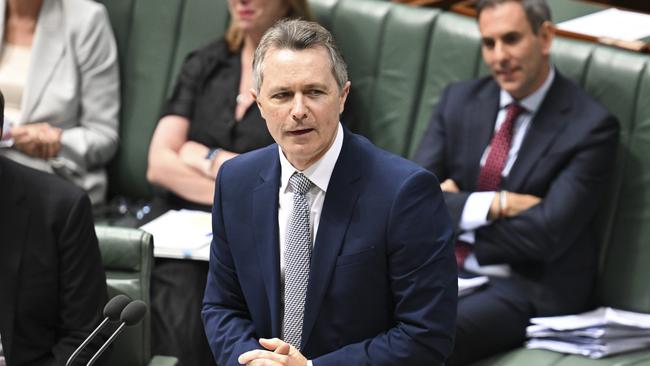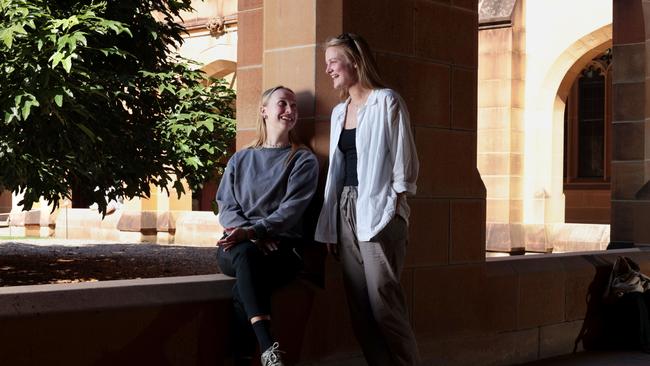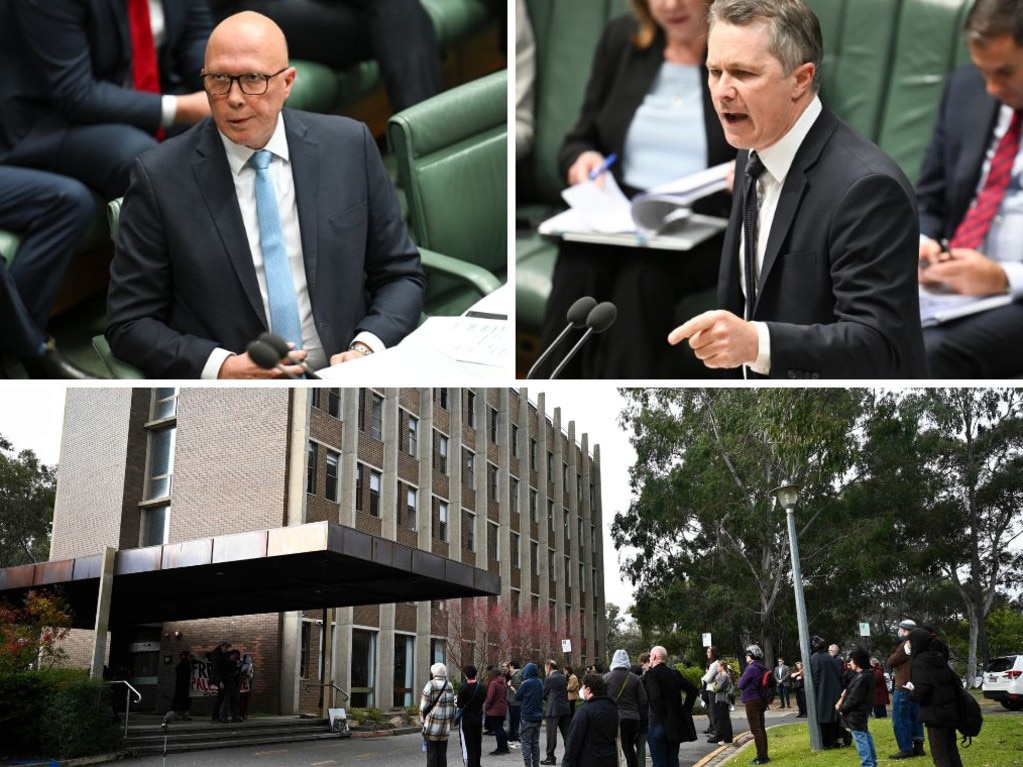Jason Clare set to scrap controversial direction after international student caps sunk
The Albanese government is preparing to replace a controversial ministerial direction, as providers warn the ‘confused and mismanaged’ policy approach is damaging the sector.

The Albanese government is preparing to replace a controversial ministerial direction that has been criticised for favouring sandstone universities over regional and outer-suburban institutions, as providers warn Labor’s “confused and mismanaged” policy approach is damaging the sector and the economy.
After the Coalition torpedoed Labor’s plan to legislate a cap on international students in the final sitting fortnight of the year, the government is examining options to rework the ministerial order that prioritises visa applications from students with offers to study at “low-risk” providers.
Education Minister Jason Clare has vowed the “de facto cap”, Ministerial Direction 107, will remain in place while legislation enshrining a cap of 270,000 students remains blocked in the parliament.
With Labor’s bill effectively shelved without the support of the Coalition, The Australian understands the government will seek to pursue its cuts to the international student intake and net migration through a revamped direction.
Direction 107 was introduced by ousted home affairs minister Clare O’Neil in December in a bid to neutralise migration as a political issue amid soaring numbers of temporary migrants, causing student visa grant rates to plummet.
As the sector braces for further policy change, Independent Tertiary Education Council Australia chief executive Troy Williams said vocational education providers had been operating under “significant uncertainty”.
“ITECA expects a replacement for Ministerial Direction 107 to be introduced soon, reflecting the Australian government’s policy intentions, which failed to gain parliamentary approval through its ill-fated bill,” Mr Williams said.
“Unfortunately, this approach will disadvantage independent registered training organisations delivering quality student outcomes, resulting in further job losses directly linked to Australian government policy.”
He said the government’s “shifting” migration and international education policies had created “significant uncertainty for small businesses, leading to job losses and undermining economic growth and competitiveness”.
On Tuesday, English and vocational training provider International House Sydney Training Services was placed into administration.

International Education Association of Australia CEO Phil Honeywood said the government was “disappointed” after the caps failed to pass the parliament”.
“In anticipation of this, it has put together a provider stakeholder taskforce which has been meeting over many weeks to provide advice on any redesign of Ministerial Direction 107,” he said.
“The key request from the international education industry is that there is more fairness in visa processing for the different risk-level providers.”
Since Direction 107 was introduced, the number of offshore student visa applications lodged has fallen 37 per cent, as prospective students look to other markets with greater chances of success.
Applications from India have fallen by 43 per cent between January and October compared to last year, applications from Nepal dropped by 57 per cent, and those from The Philippines plunged 67 per cent. However, visa applications from China have dipped by less than 2 per cent, with Chinese students typically favouring the Group of Eight universities.
Immigration expert Abul Rizvi said applicants had declined so significantly that Direction 107 was “almost redundant”.
Go8 chief executive Vicki Thomson said the “confused and mismanaged policy discussion” surrounding international education had “hit the economy hard”.
“Managed growth is crucial but the uncertainty of the discussion around caps, coupled with increased visa fees, means prospective students are voting with their feet and choosing not to come to Australia and we have seen $3bn ripped out of the economy,” she said.
Universities Australia chief executive Luke Sheehy said recent financial data showed the economy was “stuck in low gear and the handbrake on international education is a big reason for that”.
Opposition education spokeswoman Sarah Henderson said Labor’s student caps were a “complete debacle” which had been “made worse” by Direction 107.
“Labor’s student caps scheme, which would drive immigration up and not down, is a complete debacle,” she said.






To join the conversation, please log in. Don't have an account? Register
Join the conversation, you are commenting as Logout